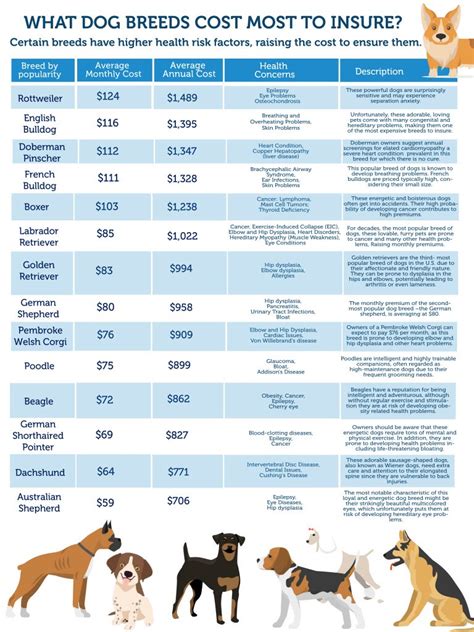Having Health Insurance

Health insurance is an essential aspect of life that provides individuals and families with financial protection and access to necessary medical care. In today's rapidly changing healthcare landscape, understanding the intricacies of health insurance has become more crucial than ever. This comprehensive guide aims to delve into the world of health insurance, exploring its various facets, benefits, and implications.
The Importance of Health Insurance

Health insurance plays a vital role in safeguarding individuals and their loved ones from the potentially devastating financial consequences of unexpected illnesses or accidents. By spreading the risk across a large pool of policyholders, insurance companies are able to offer comprehensive coverage at affordable rates.
In many countries, health insurance is not only a personal choice but also a necessary component of a robust healthcare system. It ensures that individuals have access to timely and quality medical services, preventing them from being burdened with excessive medical bills. With the right health insurance coverage, individuals can focus on their well-being and recovery without worrying about the financial strain.
Understanding Health Insurance Plans

Health insurance plans come in various forms, each designed to cater to different needs and preferences. It is crucial to understand the different types of plans available to make an informed decision that aligns with your specific healthcare requirements.
1. Traditional Health Insurance Plans
Traditional health insurance plans, also known as fee-for-service or indemnity plans, offer a wide range of coverage options. These plans typically allow policyholders to choose their own healthcare providers and specialists, providing a high degree of flexibility. However, the cost of traditional plans can be higher compared to other types of insurance.
One of the key advantages of traditional plans is the ability to customize coverage based on individual needs. Policyholders can opt for higher or lower deductibles, choose between in-network and out-of-network providers, and select additional benefits such as vision or dental coverage.
2. Managed Care Plans
Managed care plans, such as Health Maintenance Organizations (HMOs) and Preferred Provider Organizations (PPOs), are designed to provide cost-effective healthcare while maintaining a high level of quality. These plans typically have a network of preferred providers, and policyholders are encouraged to seek medical care within this network to maximize their benefits.
HMOs, for instance, require policyholders to select a primary care physician who acts as a gatekeeper, coordinating all their healthcare needs. On the other hand, PPOs offer more flexibility, allowing policyholders to visit out-of-network providers but with higher out-of-pocket costs.
3. High-Deductible Health Plans (HDHPs)
High-deductible health plans are becoming increasingly popular, particularly among younger individuals and those with a lower risk profile. These plans have lower premiums but higher deductibles, meaning policyholders must pay a larger portion of their healthcare costs upfront before the insurance coverage kicks in.
HDHPs are often paired with Health Savings Accounts (HSAs), which allow individuals to save pre-tax dollars for qualified medical expenses. This combination provides individuals with more control over their healthcare spending and the ability to save for future medical needs.
Key Considerations When Choosing Health Insurance
Selecting the right health insurance plan requires careful consideration of several factors. Here are some key aspects to keep in mind:
- Coverage and Benefits: Evaluate the scope of coverage provided by different plans. Consider the types of medical services, prescription drugs, and specialty care you may require. Ensure that the plan includes adequate coverage for your specific healthcare needs.
- Premiums and Deductibles: Premiums are the regular payments you make to maintain your insurance coverage. Deductibles, on the other hand, are the amount you must pay out of pocket before your insurance coverage starts. Assess your financial situation and choose a plan with premiums and deductibles that align with your budget.
- Network of Providers: Check the network of healthcare providers associated with each plan. If you have a preferred doctor or specialist, ensure that they are in-network to avoid higher out-of-pocket costs.
- Out-of-Pocket Costs: In addition to deductibles, consider other out-of-pocket expenses such as copayments and coinsurance. These costs can add up quickly, so it is essential to understand the potential financial implications.
- Additional Benefits: Some plans offer extra benefits such as wellness programs, telemedicine services, or coverage for alternative therapies. Assess whether these additional benefits are valuable to you and align with your lifestyle and health goals.
Maximizing Your Health Insurance Benefits
Once you have chosen your health insurance plan, it is important to understand how to make the most of your coverage. Here are some strategies to optimize your health insurance benefits:
- Understand Your Policy: Take the time to thoroughly read and understand your insurance policy. Familiarize yourself with the terms, conditions, and exclusions to avoid any surprises when you need to use your coverage.
- Choose In-Network Providers: Whenever possible, seek medical care from providers within your insurance network. This can significantly reduce your out-of-pocket costs and ensure a smoother claims process.
- Utilize Preventive Care: Many health insurance plans offer preventive care services at little to no cost. Take advantage of these services to stay on top of your health and catch potential issues early on. Preventive care can include vaccinations, screenings, and wellness checks.
- Negotiate Medical Bills: If you receive a medical bill that seems excessive or incorrect, don't hesitate to contact your insurance provider and negotiate. They may be able to help you understand the charges and potentially reduce the amount you owe.
- Keep Records and Documentation: Maintain a comprehensive record of your medical visits, tests, and treatments. This documentation can be crucial when filing insurance claims or appealing denied claims.
Health Insurance and Special Circumstances

Health insurance policies can vary significantly depending on individual circumstances. Here are some specific considerations for different situations:
1. Pre-Existing Conditions
Individuals with pre-existing conditions may face challenges when it comes to health insurance. In many countries, insurance companies are required to cover pre-existing conditions without imposing waiting periods or exclusions. However, it is essential to disclose any pre-existing conditions during the application process to avoid any potential issues.
Some countries offer specialized health insurance plans for individuals with pre-existing conditions, ensuring that they have access to the necessary medical care without facing excessive financial burdens.
2. Family Coverage
When selecting health insurance for your family, consider the unique needs of each family member. Ensure that the plan provides adequate coverage for pediatric care, maternity benefits, and any specialized requirements your family members may have.
Family plans often offer significant cost savings compared to individual plans, as the premiums are typically calculated based on the entire family unit.
3. Traveling and International Coverage
If you frequently travel or plan to live abroad, it is crucial to understand the limitations of your health insurance coverage outside your home country. Some insurance plans offer limited international coverage, while others may require you to purchase separate travel insurance.
Research and choose a plan that provides adequate coverage for your travel needs, including emergency medical evacuation and access to a network of providers worldwide.
The Future of Health Insurance
The healthcare industry is continuously evolving, and so is the landscape of health insurance. As technology advances and healthcare delivery models evolve, we can expect to see significant changes in the way health insurance is structured and delivered.
One emerging trend is the integration of digital health technologies into insurance plans. Telemedicine services, wearable health devices, and digital health platforms are increasingly being incorporated into insurance offerings, providing policyholders with convenient and cost-effective healthcare options.
Additionally, the focus on value-based care is gaining traction, shifting the emphasis from volume-based reimbursement to outcome-based payment models. This approach aims to improve the quality of care while controlling costs, benefiting both patients and insurance providers.
Conclusion
Health insurance is a complex but essential aspect of modern life. By understanding the different types of plans, considering your specific needs, and maximizing your benefits, you can navigate the healthcare system with confidence and financial security.
Stay informed, compare your options, and don't hesitate to seek professional advice when making important health insurance decisions. Remember, having the right health insurance coverage is an investment in your well-being and peace of mind.
What happens if I can’t afford health insurance?
+In many countries, there are government-funded healthcare systems or subsidies available for individuals who cannot afford private health insurance. These programs aim to provide access to essential medical care for all, regardless of income. It is recommended to research and understand the options available in your region.
Can I change my health insurance plan mid-year?
+In most cases, health insurance plans have a set enrollment period, and changes or additions can only be made during this period. However, certain life events, such as marriage, divorce, or the birth of a child, may qualify you for a special enrollment period outside of the regular enrollment window.
How do I choose the right insurance provider?
+Researching and comparing different insurance providers is crucial. Look for providers with a strong reputation, a wide network of healthcare professionals, and a track record of prompt claim processing. Online reviews and testimonials can also provide valuable insights.



